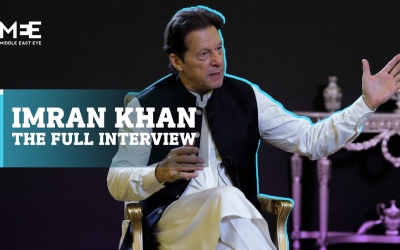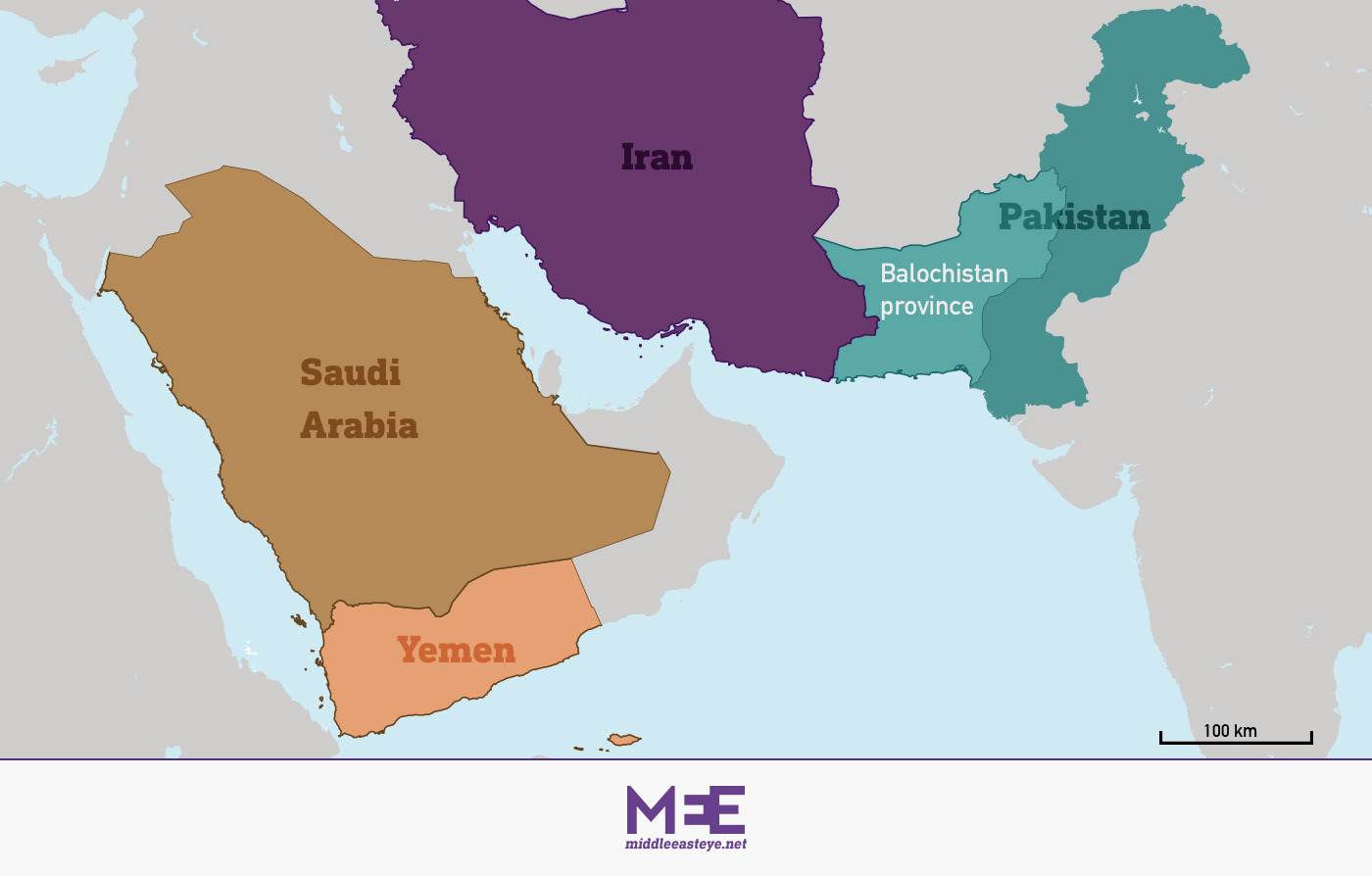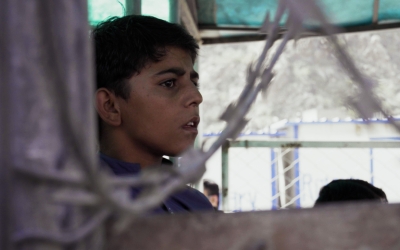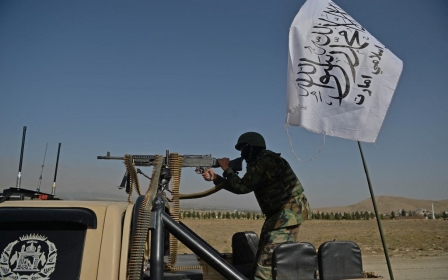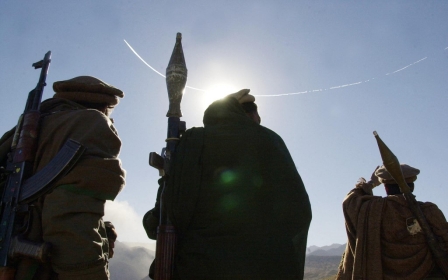Why Pakistan might be about to side with Saudi Arabia against Iran
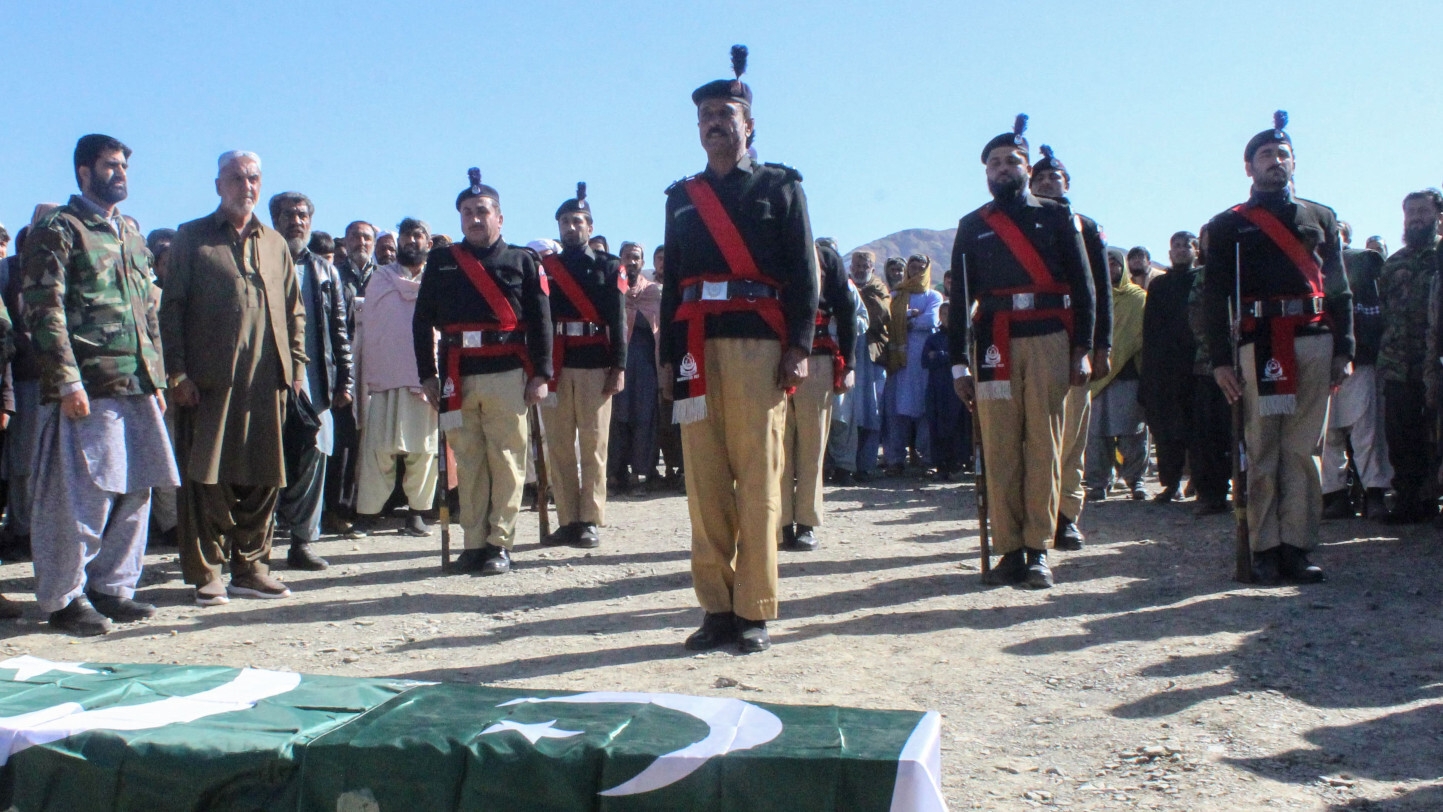
Saudi Interior Minister Prince Abdulaziz bin Saud bin Naif arrived in Pakistan on his day-long visit on Monday looking to secure an ally.
Saudi Arabia, which has now been embroiled in its war in Yemen since 2014, is searching for military and diplomatic support in its fight against the Iran-aligned Houthis, particularly after the US pulled its Patriot missile systems from the country last year.
New MEE newsletter: Jerusalem Dispatch
Sign up to get the latest insights and analysis on Israel-Palestine, alongside Turkey Unpacked and other MEE newsletters
Pakistan, too, needs a friend in the region.
A recent attack by Iran-based Baloch separatists on a major Pakistani military base ended with many dead and wounded.
The Pakistani establishment is currently discussing how to respond to what it sees as Iran's efforts to destabilise the region by allowing the separatists to operate from within its borders.
It has traditionally remained neutral in the conflict between Saudi Arabia and Iran, but analysts say that may be about to change.
Middle East Eye asked experts what Saudi Arabia and Pakistan want - and need - from each other.
Firepower against the Houthis
Prince Abdulaziz is in Islamabad to test the waters and try to persuade Pakistan to take a harder stance against Iran, says Umer Karim, a visiting fellow at the Royal United Services Institute (RUSI), a British think tank.
The Saudis want help fighting the Houthis in Yemen, he told MEE. “Ideally, they want intelligence sharing and a Pakistani military brigade in Saudi Arabia, in a defensive role.”
'I am very sure that Pakistan will not send its forces to Saudi Arabia, but the country's establishment will be looking to diplomatically confront Iran'
- Kamal Alam, the Atlantic Council
Muhammad Athar Javed, director general of Pakistan House, a think tank based in Islamabad, says Saudi Arabia's security situation looks bleak, with air defence capabilities running dangerously low since the US withdrew support.
In 2021, the Houthis conducted 375 cross border attacks on Saudi Arabia, including missile and drone attacks, according to US Special Envoy to Yemen Tim Lenderking.
“They definitely want to stop Houthi missiles flying into Saudi airspace, because now Houthi targets are becoming more and more strategic, with oil refineries and oil fields, airports and shipping ports.
“Boots on the ground in Yemen would play directly into the hands of Houthis and their Iranian backers, and that's not what the Saudis want,” he added.
Halting recruitment
Another major point on Abdulaziz’s agenda is intelligence sharing.
The Saudis fear Iran will bolster Houthi numbers with mercenaries returning from the war in Syria, says Karim of RUSI, and feel Pakistan may be able to help.
“The Zeinabiyoun militia brigade is mainly made up of Shia Pakistanis recruited by the Iranian Revolutionary Guard,” he told MEE. “They have been fighting for a while alongside government forces in Syria, but many of them have now returned,” says Karim.
He explains that Esmail Qaani of the IRGC is of major concern to the Saudis and Pakistanis. Qaani currently heads the Quds force, Iran's elite unit tasked with overseas operations, and is an expert in Afghan and Pakistani affairs.
Saudi Arabia fears Qaani could intensify recruitment of young Shia men in Afghanistan and Pakistan, pair them up with former battle-hardened Zeinabiyoun fighters and redirect them to Yemen, says Karim.
“The Saudis want Pakistan to stop any such recruitment processes in Pakistan and Afghanistan. Previously when the Pakistani intelligence agencies noticed IRGC recruiting Pakistani Shia men for the brigade, they allowed it to happen, but now the Saudis would want the Pakistanis to stop that.”
Pakistan is likely to share such intelligence now, he adds.
“This serves a joint purpose, Pakistani intelligence has been keeping a close eye on returning mercenaries from Syria and if there might be any further efforts by Iranians to recruit more Shia men.”
Kamal Alam, senior fellow at the Atlantic Council, says the Saudis also want more in the way of diplomatic support to pressure the Iranians to stop funding and arming the Houthis.
“Pakistan's civilian government has good links with Iran and is likely to be pressed by the Saudis to use their clout to reduce the current tensions.”
The Baloch question
Scarred by its own history of sectarian violence, Pakistan has previously been reluctant to play an active combat role against the Houthis in Yemen.
As the Balochistan insurgency drags on, however, that stance may be shifting.
In 2018, Pakistan sent a brigade of air defence experts, special forces and anti-mining operators to Saudi Arabia.
Separatists have waged an insurgency in Pakistan’s vast southwestern province of Balochistan for years, fuelled by anger that its abundant reserves of natural resources are not relieving citizens from crushing poverty.
“Pakistan has its own issues with Iran these days,” says Alam. “Pakistan accuses Iran of harbouring Baloch separatist militants on its soil, from where they have been launching attacks against the Pakistani state.”
Pakistan has been losing on average five soldiers a day recently, says Alam, angering Pakistan's strategic community.
“I am very sure that Pakistan will not send its forces to Saudi Arabia, but the country's establishment will be looking to diplomatically confront Iran,” he told MEE.
What next?
What’s to come largely depends on how the situation develops in Balochistan, says Alam.
Pakistani soldiers have in the past conducted border security operations in Saudi Arabia, says Javed of Pakistan House, but not crossed into Yemen.
Instead of risking open conflict with Iran-backed militias, he told MEE, “I think Pakistan will limit itself to strategy, consulting and training roles.”
The country is in a bind, analysts agree. It has to appease the Saudis but keep enough distance from the Saudi-led war in Yemen, while keeping a lid on tensions with Iran.
“Saudi Arabia's reputation is at stake,” says Javed, “that's why the desperation to approach Pakistan.”
Middle East Eye delivers independent and unrivalled coverage and analysis of the Middle East, North Africa and beyond. To learn more about republishing this content and the associated fees, please fill out this form. More about MEE can be found here.


